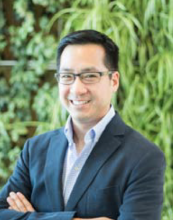CEE Seminar: Latent Queues & Collective Effects - Revisiting the Activity-based Approach to Travel Analysis for Smart Cities

Assistant Professor
Golisano Institute for Sustainability
Rochester Institute of Technology
Abstract: Smart cities promise future scenarios characterized by greater community connectivity, increasing automation levels and seamless traveler experiences through adaptive mobility services. However, from an activity-travel standpoint, these technologies also create evolving opportunities for travelers to complete activities across varying spatial and temporal scales. For example, with self-driving autonomous vehicles, discretionary activities may shift in-vehicle from their previous place locations or from an unscheduled activity queue. Making well-informed, consistent assessments of these future scenarios requires tools that capture these behavioral dynamics. This seminar presents a methodology for inferring latent activity queues from conventional travel-activity diaries that builds on arguments from order statistics. From the perspective of a single-server queueing system with vacations, an investigation of travelers’ latent activity queue characteristics, such as timedependent lengths, reveals that these vary with activity type and socioeconomic dimensions, such as work status. In addition to latent activity queues, collective effects may also impact travel-activity decisions in smart cities, given their increasing system-level intelligence and interdependences. This seminar finishes with a discussion of current and future research on investigating and understanding collective effects through econometric models and carefully designed interactive behavioral lab and field experiments.
Bio: Roger Chen is currently an assistant professor at the Golisano Institute for Sustainability at the Rochester Institute of Technology. His research focuses on understanding and modeling the dynamics of user response to real-time information systems and emerging communication technologies in transportation systems. Methodologically, his research develops techniques for modeling behavioral dynamics through a combination of econometrics, probabilistic modeling, simulation and interactive experiments. Recent efforts include inferring latent activity queues from conventional travel-activity diaries and developing econometric models of count with endogenous choices. Additionally, he has worked on choice models with randomly distributed values of time, which have been integrated with dynamic traffic-assignment platforms for predicting traveler responses to congestion pricing and varying weather. He received his doctorate from the University of Maryland, College Park, and bachelor's and master's degrees from the University of Texas at Austin, all in civil and environmental engineering.
Share
Upcoming Events
-
MSE Special Seminar: Architecting 3D Complex Materials for Sustainability
-
MSE Special Seminar: Decarbonizing Industries for a Climate-resilient Future - From Renewable Energy to Sustainable Material Recovery
-
CEE Seminar: BIM and the Digital Twin
-
MSE Special Seminar: Revolutionizing Battery Technology - Engineering Quantum Materials for Enhanced Safety and Performance in Solid Electrolytes
-
MSE Special Seminar: Designing Sustainable Soft Matter from the Molecule Up
